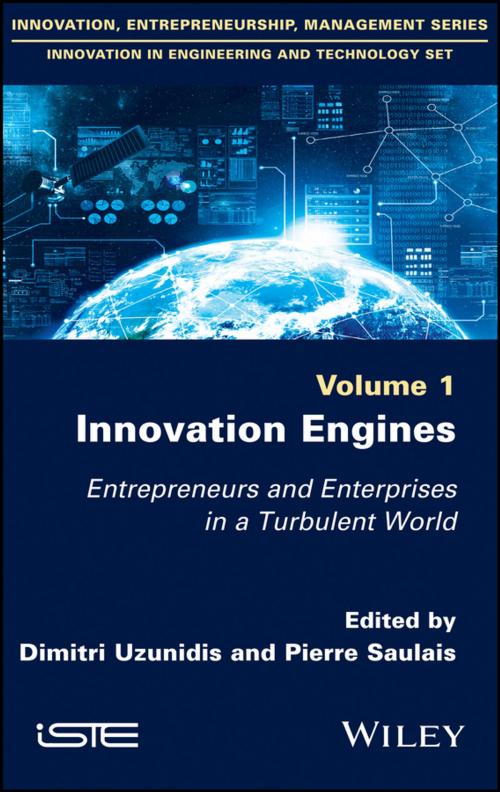Innovation Engines
Entrepreneurs and Enterprises in a Turbulent World
Business & Finance, Management & Leadership, Management Science| Author: | ISBN: | 9781119427353 | |
| Publisher: | Wiley | Publication: | May 17, 2017 |
| Imprint: | Wiley-ISTE | Language: | English |
| Author: | |
| ISBN: | 9781119427353 |
| Publisher: | Wiley |
| Publication: | May 17, 2017 |
| Imprint: | Wiley-ISTE |
| Language: | English |
In an uncertain economy where business risk is significant, the company tends to rely more on its environment than to invest, for example, in all steps of technological creation; This can be explained by the fact that investments in the acquisition (ownership) of production resources are less expensive than those implied in the formation of these resources; which also explains the attractiveness (in an open economy) of regions with abundant scientific and technical resources. To understand and analyze the innovation process in order to better design and launch new goods, services and technologies, one has to consider the creative dimension of the individual, the business and the organization in general. In new approaches to innovation, the entrepreneur and the company are analyzed through their skills, and their function of resource generation; Innovation thus becomes endogenous, gradual or radical, integrated in a complex process with many feedbacks and interactions. The innovative organization (small or large) is presented in this book as a dynamic system composed of specific and diverse skills (including those of the contractor, engineers or managers). By acquiring, combining and mobilizing these skills, the innovative agent (entrepreneur or company) can create technological resources and develop relations with its environment. Hence the importance of management in design, implementation, protection of intellectual property as well as of the development of new goods, services and technology, commercial and organizational models.
In an uncertain economy where business risk is significant, the company tends to rely more on its environment than to invest, for example, in all steps of technological creation; This can be explained by the fact that investments in the acquisition (ownership) of production resources are less expensive than those implied in the formation of these resources; which also explains the attractiveness (in an open economy) of regions with abundant scientific and technical resources. To understand and analyze the innovation process in order to better design and launch new goods, services and technologies, one has to consider the creative dimension of the individual, the business and the organization in general. In new approaches to innovation, the entrepreneur and the company are analyzed through their skills, and their function of resource generation; Innovation thus becomes endogenous, gradual or radical, integrated in a complex process with many feedbacks and interactions. The innovative organization (small or large) is presented in this book as a dynamic system composed of specific and diverse skills (including those of the contractor, engineers or managers). By acquiring, combining and mobilizing these skills, the innovative agent (entrepreneur or company) can create technological resources and develop relations with its environment. Hence the importance of management in design, implementation, protection of intellectual property as well as of the development of new goods, services and technology, commercial and organizational models.















